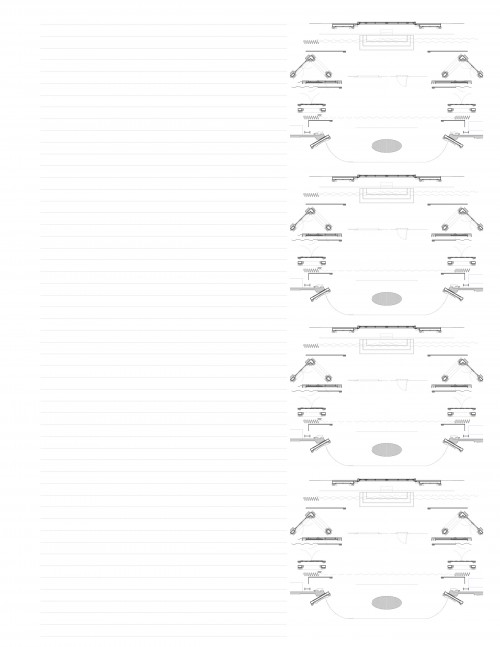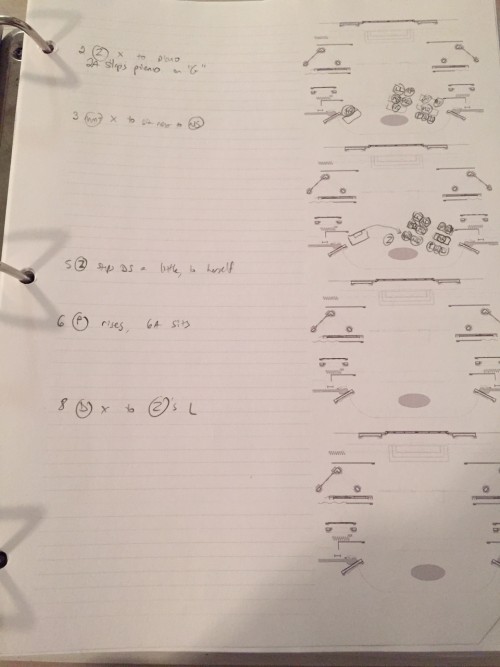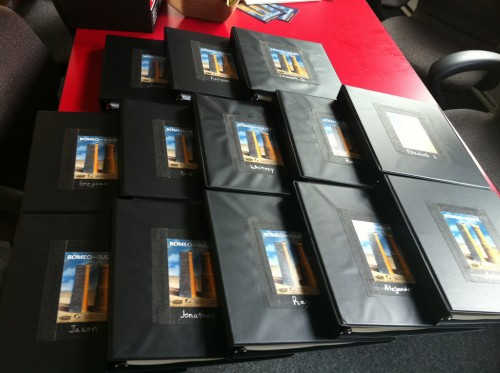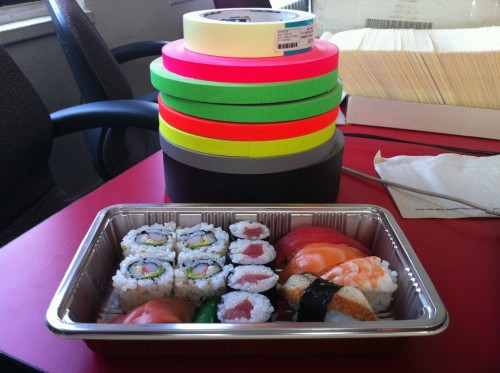Hello, Google visitors!
While finishing up my blocking sheets for Sister Act, I decided to take a stroll through Google’s results for “Stage management blocking sheets” just to see if anybody had an idea I wanted to steal. While some of the results were from this site (which is generally what happens when I search for things, and always leads me to be like, “Hey that one looks like mine!”), none of them were blocking sheets, because I don’t think I’ve ever made a post about it.
So I suppose I should share what mine looks like, at least on this show.

I make different choices for nearly every show, based on how complex the set is, how big the cast is, and how much fine detail needs to be shown based on both those things.
In this case I have a cast of (damn it, I had to look it up) 22, and a stage that is essentially bare, with numerous things coming on and off on tracks. So I went with only four groundplans per sheet (which I know is a lot for some people, but low for me), and kept the stage as clean as possible. All scenic pieces are shown in their offstage positions, so I know where they are and can draw them in where they play, and a couple very significant flying pieces (basically the ones that come down to the deck) are lightly sketched in so I can see the depth and then draw them in darker for scenes where they’re there.
I also included very faint gray lines for writing blocking. I usually leave it as free-form white space so I can squeeze or expand as the situation demands, but in this case I think it might be nice, and I don’t know if I’ve ever done it. I made sure the lines are faint enough to serve as a guide, without getting in the way should I need to ignore them.
I generally try to get away with printing my blocking sheets on the back of the script pages, to reduce the thickness and weight of the script, and then with spare pages and scotch tape, cobble things together when the blocking totally changes, or we get new script pages.
On this show, I’m stealing a page from my very unconventional Mary Poppins process: I want to take blocking on the calling script so I can be looking at my cues every time we run something. Thanks to our very ahead-of-things lighting designer, and the fact that I’ve been trying to teach myself the call since January, I have a digital calling script to start with, and some idea what I’m doing with it.
One thing I noticed on Poppins, which I thought would be a little better on the summer schedule, but isn’t, is that there’s only room for one dress rehearsal. Because I’m not familiar with the backstage calling position, I highly doubt I’ll want to call that one run from the tech table, so I need to use the one chance I get as we go through each moment in tech to get my light cues exactly where I want them. Which means I need to be right on the first try as often as possible. And that means watching every time we do something in the rehearsal room with an eye to where I’m going to call things, and whether I think I would have been right, and keep making adjustments accordingly.
Or I could tech the show in a day-and-a-half, and get another run. Which is definitely something I’d like to try for, but not something I’m going to bet on.
So instead of printing a blank script for blocking, I’m going to print my calling script as it exists the day before first rehearsal. I know it’ll change a lot, and I want the freedom to easily re-print pages as they become significantly different. That means having to have actual separate blocking pages for every page. So fine! I’ll do it the way you’re “supposed to” do it, just this once.
And to answer the other potential question you have about my blocking book, I do blocking on the right-hand side, script on the left. And I forget to reverse-hole-punch my copy before doing all the other scripts about 50% of the time.






